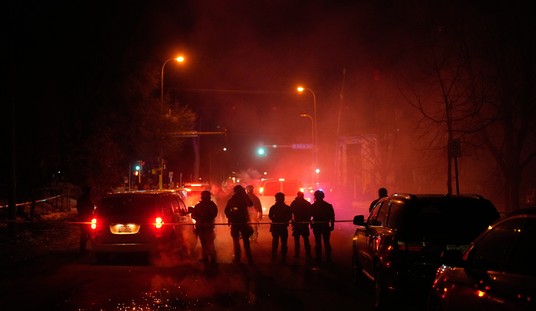It was reported by the New York Times, and a couple of prominent British sites like The Guardian and The Telegraph over the weekend that a Gaza peace activist has disappeared. Since then the story—apart from some Israeli and Jewish sites—hasn’t gotten the kind of attention it would have in a more decent world.
As the Times tells it:
For five years, a small but feisty group of Palestinian peace activists in the blockaded Gaza Strip has been organizing small-scale video chats with Israelis….
On Monday [last week], the group, the Gaza Youth Committee, drew one of its biggest crowds yet—more than 200 participants—this time on Zoom….
But other Palestinians in Gaza, who took umbrage at the idea of befriending Israelis, were also listening in. And the resulting public uproar prompted Hamas…to arrest the youth committee’s leader and several other participants.
The charge: “holding a normalization activity” with Israelis, which a Hamas Interior Ministry spokesman…called a crime, saying it amounted to the “betrayal of our people and their sacrifices.”
The youth committee’s leader, Rami Aman, 38, has not been heard from since he surrendered Thursday morning at Internal Security headquarters in Gaza City….
The report goes on to say that:
The nearly two-hour video chat, held in English, gave the left-leaning Israeli participants, mostly in their 20s and 30s, a rare chance to hear directly from a handful of Gaza residents about life under the 12-year Israeli-Egyptian blockade and how the coronavirus is affecting things.
A few caveats: the report doesn’t say that the Gazans said anything about life under Hamas, a terror group that necessitates a blockade of Gaza by exporting rocket fire and other forms of terror. It doesn’t say what the “peace activist’s’” notion of peace is—it could be Israel’s dissolution into an Arab state in which its Jewish population would be a minority. And it doesn’t say how “left-leaning” the Israeli participants were; if far enough to the left, then they too would be entertaining wacky ideas that couldn’t lead to peace.
But, in any case, it’s clear that no crime—according to civilized norms—was committed by holding the Zoom chat. It’s also clear that the words “has not been heard from since” regarding Rami Aman, leader of the Gazan group, imply a grim fate. Subsequent reports on Israeli and Jewish sites (such as here and here) likewise have no further information about him to give.
It sounds bad, considering that—as detailed in a State Department human rights report—abuses are rampant under Hamas in Gaza, as well as under the Palestinian Authority in the West Bank. That includes “restrict[ions on] freedom of expression, the press, and the Internet through violence, threats of violence, unjustified arrests, and prosecutions”; “[holding] political prisoners and detainees”; “unlawful or arbitrary killings, torture, and arbitrary detention,” and much else.
Seemingly, then, Rami Aman’s fate—first broached in the New York Times, not exactly an obscure niche—should stir even a spark of interest among the “pro-Palestinian” crowd. But so far there’s no sign that it has.
Not among the Boycott, Divestment, and Sanctions (BDS) movement, which campaigns for the economic strangulation of “racist, apartheid” Israel. Not among Students for Justice in Palestine, which holds annual “Israel Apartheid Weeks” on campuses throughout the Western world. Not among left-wing Jewish groups such as J Street, which lobbies Washington to force concessions to the Palestinians on Israel, or the radical “pro-Palestinian” outfits Jewish Voice for Peace and If Not Now. And not among “pro-Palestinian” members of Congress like Ilhan Omar, Rashida Tlaib, or Alexandria Ocasio-Cortez—and the list goes on and on.
In fact, last summer when Israel banned Omar and Tlaib from visiting Israel, this supposedly egregious abuse of their rights became an international cause célèbre—even though they were planning to exploit the visit for anti-Israeli activities, and even though Israel eventually agreed to let Tlaib visit her grandmother in the West Bank, an offer Tlaib then turned around and rebuffed.
Are people, even “pro-Palestinians,” too distracted now by the COVID-19 crisis to care about Rami Aman sitting somewhere in a horrendous Hamas prison? Well, if one can imagine the New York Times headline “Israel Jails Palestinian Peace Activist for Zoom Chat,” followed by the information that the activist “has not been heard from since”—the answer is clear: even in today’s situation, that news would make a splash, and the abovementioned groups and individuals, and many others, would have lots to say about it.
It seems, then, that the abuse of Rami Aman’s rights doesn’t register because it doesn’t fit the “Israelis do bad things to Palestinians” paradigm. Palestinians—really—doing bad things to Palestinians is just of no interest. Not even to “pro-Palestinians”—whose real focus is not Palestinians but Israel they want to pummel.
P. David Hornik, a longtime American immigrant in Israel, is a freelance writer, translator, and copyeditor living in Beersheva. In addition to PJ Media, his work has appeared in FrontPage Magazine, National Review, New English Review, American Spectator, American Thinker, The Times of Israel, the Jerusalem Post, and elsewhere. Among his books are Choosing Life in Israel and the novel Beside the Still Waters, which was published by Adelaide Books in 2019.









Join the conversation as a VIP Member